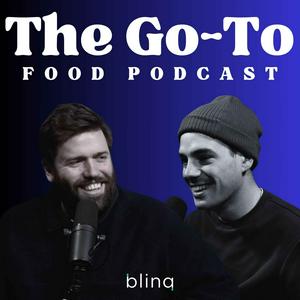This week on the Go To Food Podcast, we sit down with the godfather of Spanish food in London, José Pizarro. From carving jamón door to door in the 90s with a bottle of Rioja under his arm, to building a Bermondsey Street empire that changed how Britain eats, José’s story is one of graft, instinct and relentless belief in the flavours of home.
We dive straight into Andalucía and his unforgettable Cádiz food trips during bluefin tuna season, unpacking the 3,000-year-old almadraba tradition, divers herding 450 kilo fish, and the almost mythical morillo cut from just above the eye. He explains how he would cook it, plancha, good salt, bread, maybe a perfect anchovy, and why that single bite can be one of the greatest things you will ever eat. We talk sangria with cava not prosecco, gin tonics done properly, and why Cádiz right now might be Spain’s most exciting region.
Then we rewind to Extremadura: milking cows at dawn, sucking warm milk straight from the cow, cream skimmed thick off the top for toast and sugar, migas fried for hours in olive oil, and baby goat stewed simply with garlic, paprika and wine. He tells us about hating his mum’s lentils with chorizo as a child, only for them to become one of the last meals he would ever choose. We hear about concentration struggles at school, nearly becoming a dentist, the moment he realised he could not face a desk for life, and the six-month gap that changed everything when he fell in love with kitchens from the sink up.
There are brilliant London stories too: arriving unable to speak English, nearly going home, wild Gaudí era parties, Air Brothers and the simplicity that shaped him, Brindisa and those electric early Borough Market mornings frying eggs, potatoes and jamón for shoppers with proper bags. He reflects on opening José and Pizarro before Bermondsey was Bermondsey, cooking for artists at White Cube, earning the Royal Cross of Isabel la Católica from the King of Spain, and still having his 92-year-old mum gently judging his cooking. Add nightmare kitchen floods, brutally honest takes on government and hospitality, a whistle-stop guide to where to eat in Cádiz, Galicia and Seville, and a perfect sign-off with Paco de Lucía, and you have one of the richest, funniest and most heartfelt episodes we’ve recorded.
Pre Order Ben's Incredible Book - All You Can Eat - By Clicking Here - https://www.amazon.co.uk/All-You-Can-Eat-British/dp/1805221523
Get 2 Months of Blinq For Free - With Code - GOTOBLINQ - https://blinqme.com/
Order The Greatest Meat In The Country From HG Walter Here & Have Restaurant Quality Meals From Home - www.hgwalter.com
Hosted on Acast. See acast.com/privacy for more information.


